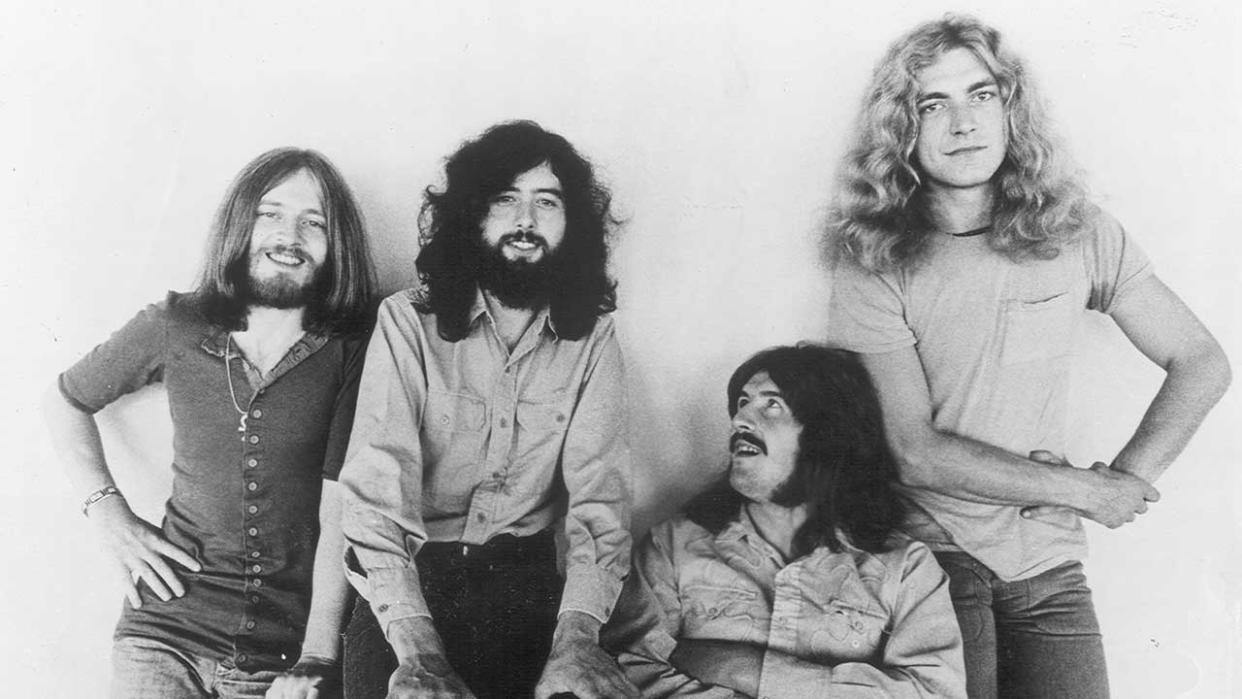"I wrote it on a bit of paper on the train": How Led Zeppelin turned a repetitive riff into one of their most killer tracks

- Oops!Something went wrong.Please try again later.
- Oops!Something went wrong.Please try again later.
A spectral presence loomed over the making of Led Zeppelin’s IV, with Jimmy Page convinced that ghosts haunted the house of Headley Grange where the band did much of the recording for their classic album. But it was a very real-world guest who influenced the title of Black Dog, IV’s exhilarating opener named for an elderly Labrador that kept wandering in and out of the grounds.
The track originated from a searing blues riff by John Paul Jones, the bassist influenced by Tom Cat, a song on the Muddy Waters album Electric Mud that similarly revolves around a lithe, repetitive lick.
Jones had scrawled the idea down on a train home from a rehearsal at Page’s boathouse in Berkshire. “My dad had taught me this very easy notation system using note values and numbers,” Jones told Mojo in 2007, “so I wrote it on a bit of paper on the train.”
For Plant, Black Dog summed up one way that Led Zep could work speedily and efficiently. “Sometimes John Paul would contribute the leading part of a song and then it would be a pretty quick arrangement of bits and pieces so that the song fitted together rather quickly,” Plant said in Joe Smith’s 1988 book Off The Record.
Black Dog, though, might have been the exception – it took a few gos for the band to lock into its irregular groove. “It was originally all in 3/16 time,” Jones recalled in Classic Rock, “but no one could keep up with that.” Bonham, in particular, struggled the song’s shifting rhythms. “I told Bonzo he had to keep playing four-to-the-bar all the way through Black Dog,” Jones said. “If you go through enough 5/8s it arrives back on the beat.”
Whilst that take on the song suggests you might require a masters in maths and musical notation to revel in its magnificence, Black Dog’s thrills are much more visceral. It remains an explosive, daring opener to a classic record.

